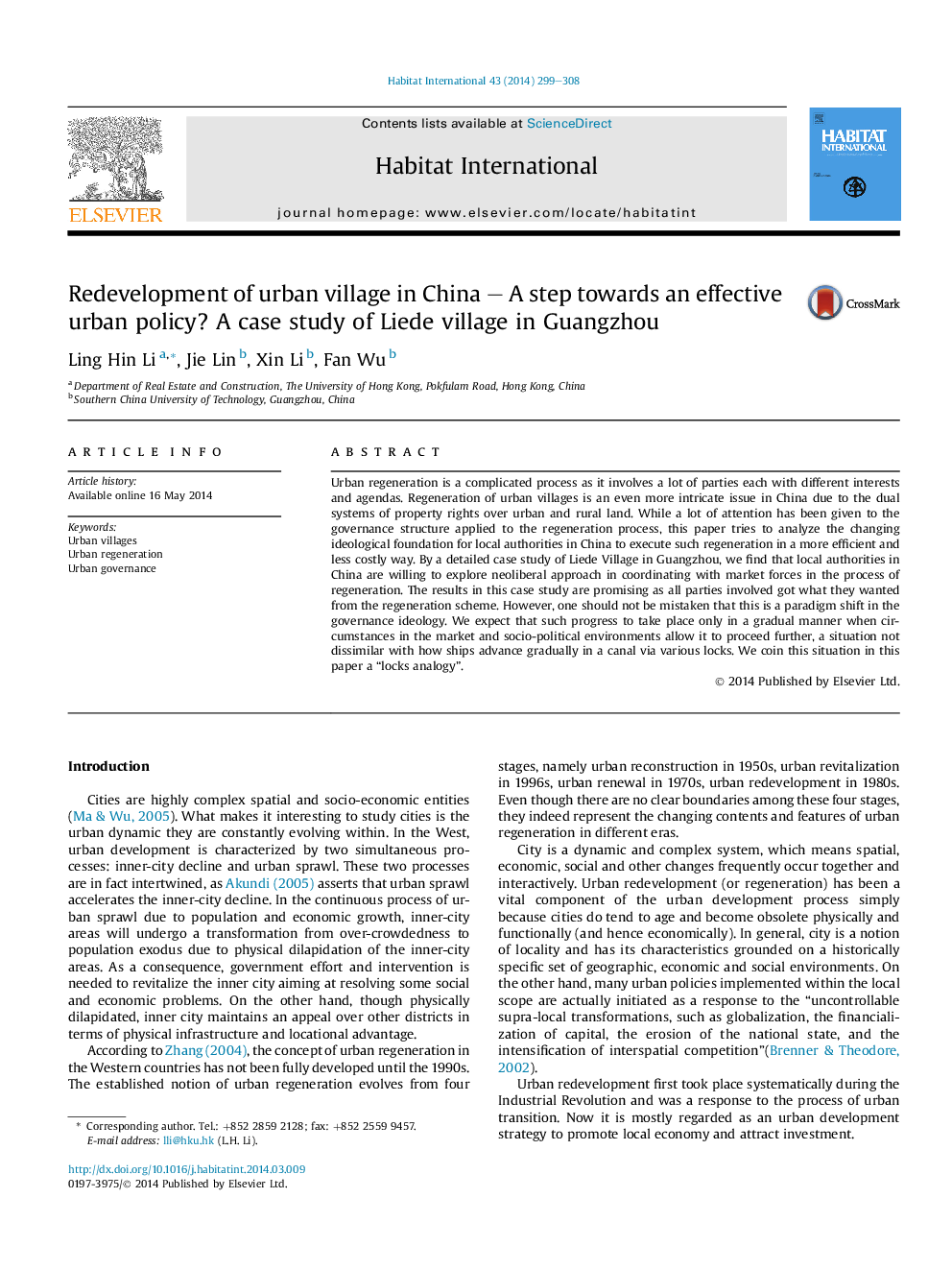| Article ID | Journal | Published Year | Pages | File Type |
|---|---|---|---|---|
| 7456395 | Habitat International | 2014 | 10 Pages |
Abstract
Urban regeneration is a complicated process as it involves a lot of parties each with different interests and agendas. Regeneration of urban villages is an even more intricate issue in China due to the dual systems of property rights over urban and rural land. While a lot of attention has been given to the governance structure applied to the regeneration process, this paper tries to analyze the changing ideological foundation for local authorities in China to execute such regeneration in a more efficient and less costly way. By a detailed case study of Liede Village in Guangzhou, we find that local authorities in China are willing to explore neoliberal approach in coordinating with market forces in the process of regeneration. The results in this case study are promising as all parties involved got what they wanted from the regeneration scheme. However, one should not be mistaken that this is a paradigm shift in the governance ideology. We expect that such progress to take place only in a gradual manner when circumstances in the market and socio-political environments allow it to proceed further, a situation not dissimilar with how ships advance gradually in a canal via various locks. We coin this situation in this paper a “locks analogy”.
Related Topics
Social Sciences and Humanities
Social Sciences
Development
Authors
Ling Hin Li, Jie Lin, Xin Li, Fan Wu,
